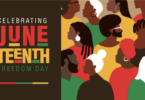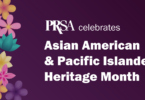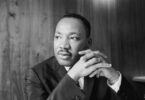In celebration of Black History Month in February, PRSA invited prominent black leaders in the public relations profession to offer their views and ideas for achieving greater racial and ethnic diversity in the industry. This is the first in the series.
PRSA is also curating articles and blog posts throughout Black History Month via an open and collaborative wiki. Check out our Black History Month wiki here and add your posts.
It’s not a coincidence that the words “diverge” and “diverse” begin with the same five letters. When you peel back their common usages, what you will find is that both of these words can be connected by a common theme: different.
As the month of February begins and many Americans look to honor and celebrate Black History Month, diversity will get a little more attention than it typically enjoys. Employers across the spectrum will tout the diversity of their workforce, or highlight their support of minorities and/or minority issues. And while the advances many employers have made in minority hiring should be applauded, there is one internal function that could benefit from the addition of some different voices, and that is communications.
While I am resigned to the fact that for the foreseeable future, the field of public relations will probably produce and be populated by a majority of female practitioners, what I refuse to support is the notion of there not being enough qualified African-American talent in the market to fill key positions. I’ve seen them out there, whether networking through organizations like the Black Public Relations Society, attending workshops and events sponsored by PRSA or marketing themselves on Twitter. There’s some impressive PR talent out there and they’re hungry for opportunities or new challenges.
Finding African-Americans working within the field of public relations is not such a foreign concept. One of the early public relations innovators was an African-American named Moss H. Kendrix. And since the heyday of Mr. Kendrix, African-Americans have been engaged in PR every step of the way. Even today, a host of colleges and universities are cranking out minority graduates with degrees in communications.
So the question remains, why does it seem that only a select few actually earn spots on the corporate communications teams of today’s private and public organizations?
Don’t get me wrong, public relations is an intensely competitive field, and that can account for some of the low number of African-American new hires. But I also believe that some employers may be reluctant to diverge from that which is familiar, or are slow to embrace any sort of real diversity as it pertains to this sometimes high-profile organizational function. And it is that lack of daring that may contribute to holding the number of practicing African-American PR Pros at modest levels.
By incorporating different types of voices to tell an organization’s story, it can only enrich the communications capabilities while adding to the creative mix. Diversity in communications also can mean building bridges to new audiences or tapping into new perspectives and ideas. There’s something to be said about getting out of one’s racial comfort zone and making a hiring decision based on experience, passion and drive, even if it means professionally committing to someone who may be different.
I’ve been fortunate throughout my career to have been hired based on my abilities, as well as my potential as a communicator, but I also know what it’s like to be qualified for a position but led to feel that despite my experience, I may have been passed over due to someone’s comfort level with my racial make-up.
As an African-American, I think it’s imperative for up-and-coming minority PR professionals to be able to see people who resemble themselves in leadership communications positions. Not only does it give them something to strive for, but it helps to soften the perception that such feats are even within the realm of possibility.
When I was an up-and-comer in public relations, I had two very good African-American role models: Anthony Brown (former director of communications, Maryland Transit Administration) and Millree Williams (former director of public relations, Bowie State University; current executive director of public affairs strategy, University of Maryland, College Park). Both men, whom I considered mentors, showed me what was possible and what heights I could reach professionally. They also taught me a lot about the right way to conduct public relations.
Public relations has come too far in its evolution, not to be a profession that shows off a little more diversity. Besides, a good PR professional is a good PR professional regardless of what they look like on the outside.
Larry Jones is director of communications for the Consumer Specialty Products Association.







Larry,
This is an amazing post. I’ve always found the topic of “diversity” to be hard to tackle. Through my experience with PRSSA, I have developed amazing relationships with professionals in the industry and haven’t had a problem with full-time employment. However, I do have plenty of friends (who are African-American) that struggle on a regular basis. The sad part: they are just as qualified as I am. When being passed over for a job, I am sure a great deal of people of color have thought it’s due to someone’s comfort level with their racial make-up.
On a positive note, I think our industry is doing a great job to fix this problem. I’m sure things will be a lot different in five or more years.
Best,
Wow! This was a great post. This is a good tool to use for opening dialogue among other PR professionals on EVERY level. Recently, I’ve been consulting HR departments with Diversity & Management training to get them to catch up with the ever changing workforce and with the amount of diversity we encounter in our everyday lives you’d think this would be an easy feat. Unfortunately unless the HR department is of a diverse culture or have been exposed to diversity outside of their neighborhoods, family or what have you it remains an issue. This is one of the reasons why I encourage individuals to start their own endeavors to incorporate what they were not given….opportunity and to hire those who have experienced the same.
I really appreciate the positive feedback on the guest blog post. I really believe that there is a lot of great untapped PR talent out in the market. And it just so happens that some of them are African-Americans.
If you’re an employer and you can acquire the best possible talent, who might happen to be a minority, why not seize the opportunity. I simply makes good business since.
[…] Read the entire article at PRSAY. […]